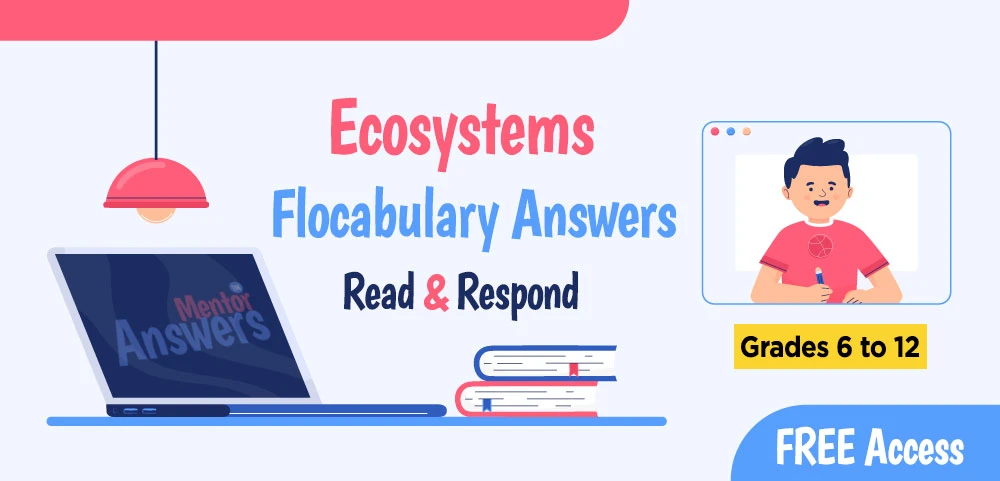Are you looking for a reliable source of answers for the Ecosystems Flocabulary Quiz, Read & Respond? You’ve come to the right place!
We have a team of teachers who have checked and verified the correct answers for all the questions. You can trust our expertise and save time by using our answers key.
Flocabulary Ecosystems Quiz Answers Key
- grass, lion, bacteria
- antelope, lion, grass
- antelope, bacteria, grass
- grass, antelope, lion
- producer, consumer, predator, decomposer
- symbiosis, producer, prey, decomposer
- consumer, predator, carnivore, herbivore
- niche, consumer, decomposer, chlorophyll
- Green plants use chlorophyll to produce food.
- An invasive species enters the environment.
- Consumers eat producers.
- Predators kill prey.
- parasite and host
- predator and prey
- prey and predator
- scavenger and parasite
- a chlorophyll and a green plant
- a wolf and a rabbit
- a tapeworm and a human
- sunlight and green plants
- a group of organisms and the habitat they share.
- the food chain in an area.
- a predator and prey relationship.
- the creation of carbohydrates by green plants.
- anything that limits how many organisms can live in an ecosystem.
- how green plants make carbohydrates.
- the process of respiration.
- the number of organisms an ecosystem can support.
- green plants use to produce food.
- animals use to breathe.
- predators use to catch their prey.
- illustrates symbiosis.
- an organism that lives in or on another organism
- an organism that feeds on dead matter
- an organism that produces food from the energy in sunlight
- organisms that eat plants and grasses
- chlorophyll and vitamins
- carbon dioxide and water molecules
- elements like carbon, nitrogen and phosphorus
- energy-rich carbohydrates
Flocabulary Ecosystems Read & Respond Answers
Expand your knowledge by exploring the Read & Respond answers related to the topic of our Subject:
- the antelope that eat the grass
- the scavengers that eat the dead lion
- the grasses the antelope eat
- the lions that eat the antelope
- one organism benefits while its host gets nothing in return.
- bacteria takes food from your stomach, but does nothing for you.
- both organisms involved benefit or are neutrally affected.
- your body produces vitamins and then uses them for nutrition.
- a fish eating dead seaweed floating in the water
- a vulture picking apart a dead mouse in the woods
- a squirrel gnawing at a dead bird on the ground
- a fungus growing on a rotten tomato, breaking down its skin
- an herb like basil, which gets energy from the sun
- a dog, which eats meat and vegetables
- a dinosaur that only eats marsh grasses
- a buzzard that only eats roadkill
- A pond has only produced a small amount of algae, so the fish population is also small.
- The weather was extra humid last summer and there were more mosquitos than ever before.
- A farmer planted new grass and months later his animals looked healthier than they’ve looked in years.
- This year, ticks are supposed to be worse than in previous years, with a huge number of them carrying Lyme Disease.
Are you interested in delving into additional subjects and Lessons related to Flocabulary? Check Here To Get All Flocabulary Answers Key.
If you have any questions or need more answers key for your favorite subject, please leave a comment below or contact us through our website. We would love to hear from you and assist you in your learning journey.

